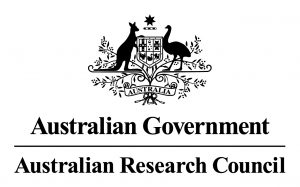MANAGEMENT OF BLUE CARBON SYSTEMS
Optimal management of coastal ecosystems for blue carbon sequestration
This ARC Linkage Project develops fundamental new knowledge of how Australia’s coastal ecosystems can be managed to achieve maximum carbon offset capacity into the future.
This research develops world-first decision tools that allow resource managers to predict how coastal management actions will affect the capacity of coastal ecosystems to sequester carbon and optimise their management for the most cost-effective blue carbon returns. This research is critical for the inclusion of coastal carbon into natural resource management and into the national greenhouse gas accounts providing new societal and financial impetus for restoration and protection.
Program background
Removal of atmospheric CO2 through biosequestration is necessary to keep global warming under 2°C as the world transitions to a low-carbon economy. Among the most efficient systems for biosequestration are vegetated coastal habitats – seagrasses, saltmarshes and mangroves – known as ‘blue carbon’ ecosystems. Australia holds one of the world’s largest stores of blue carbon worth billions of dollars. However, degradation of coastal ecosystems is dramatically weakening this capacity, resulting in the release of ancient stored blue carbon into the atmosphere, thereby accelerating climate change.
Selected Media & Publications
Can we manage coastal ecosystems to sequester more blue carbon?
Macreadie PI, Nielsen DA, Kelleway JJ, Atwood T, Seymour J, Petrou K, Connolly RM, Thomson ACG, Trevathan-Tackett S, Ralph P (2017).
Frontiers in Ecology and the Environment 15: 206-213.
Our research highlighted three management strategies (at the catchment-level) that hold promise for optimizing coastal blue carbon sequestration include: (1) reducing anthropocentric nutrient inputs, (2) reinstating top- down control of bioturbator populations, and (3) restoring hydrology by removing tidal flow restrictions and restoring fluvial inputs.

Project Partners
This work was led by the Blue Carbon Lab, involving partners from The Nature Conservancy, Parks Victoria, and Victoria’s Department of Environment, Land, Water, and Planing (DELWP).
Funding sources
This project was funded by an Australian Research Council (ARC) Linkage Grant.

@BlueCarbonLab
Follow this program on social media using @BlueCarbonLab
